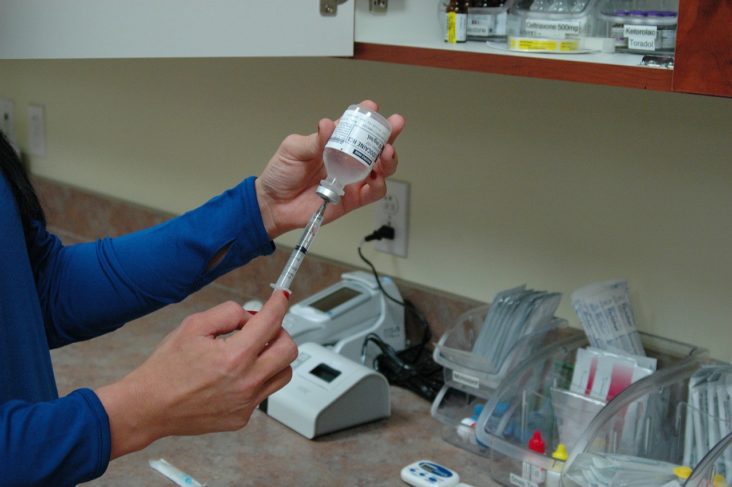For some children, going to school can be emotionally traumatic. Their school anxiety may stem from such things as their dread of encountering a particular child or teacher, their worry about not doing well in school, or the fear of failing a test or “looking stupid.” While many of these worries are a normal part of growing up, they may also be triggered by stressful events like moving, changing schools, or being bullied.
Just about every child goes through a day here and there when they don’t want to go to school, but the Anxiety and Depression Association of America notes that about 2-5% of children regularly experience school refusal due to severe stress or emotional concerns. School refusal is not the same as truancy: truant children skip school, then go out to play. They aren’t afraid of going to school and they try to hide their absence from school from their parents.
On the other hand, children experiencing a school refusal disorder will stay home (where it is safe), are fearful of going to school, and will try to talk their parents into letting them stay home. Often, the children with school avoidance also suffer from mood and anxiety disorders, such as post-traumatic stress disorder (PTSD), social anxiety, depression, or panic disorders.
Symptoms of School Refusal
School refusal is most common in children ages five, six, ten, and eleven, according to the American Academy of Family Physicians. The pattern of rejecting school isn’t the same for every child. Some kids will go off to school without a problem, but become more anxious as they get closer to the building. Some children have no trouble until a holiday comes up, then they become depressed or anxious when the time comes to go back to school. Others will go to school willingly, but frequently ask to visit the school nurse. Still others are chronically tardy, skip a certain class most days, or simply decline to go to school.
Frequently allowing your child to stay home from school keeps them from learning and advancing with their peers. Additionally, a child’s symptoms may increase or they may suffer from additional symptoms the longer they stay out of school.
Just as school refusal patterns aren’t the same for each child, the symptoms of school anxiety can be different, as well. Your child may experience some of these signs of school refusal:
- Sleep issues
- Temper tantrums, defiance
- Crying or exhibiting fearfulness
- Panic symptoms
- Threats to harm themselves if they have to go to school
- Headaches, stomach aches
- Nausea, vomiting, diarrhea
- Heart palpitations
- Separation anxiety
School Anxiety Treatment
School refusal is best treated as a collaborative effort. The first objective is to get the child back into the classroom because the longer they stay out of school, the harder it can be to go back.
With that goal in mind, the child’s physician should do a thorough exam to be sure any physical complaints, such as headaches and abdominal pain, don’t stem from a medical condition. Once medical concerns have been ruled out, your child’s teacher will be asked to evaluate for behavioral issues and things like problems with report cards and tests, or the possibility of the child being bullied.
Armed with this information, a child psychologist or other mental health professional will evaluate your child to look for any emotional or psychiatric difficulties. These results, combined with the medical and school evaluations will help them develop the most effective plan of treatment.
School refusal can be addressed through several types of psychological therapy. For example, exposure therapy can ease your child back into school by allowing them (with cooperation from the school) to attend school part of the day and gradually increasing the time they spend there.
Cognitive behavior therapy can teach the child how to change their destructive behavior patterns. This therapy helps them develop coping techniques, and challenge their negative thoughts through strategies like role playing, relaxation techniques, and guided imagery. Operant behavior techniques can also be used to reward the child for attending or staying in school.
If your child’s school anxiety is new, often working with the teacher to identify and eliminate triggers can be enough to reverse it. However, if the school refusal has become significant, the therapies discussed above offer excellent outcomes for getting your child back into the classroom.
Our Children’s Center Can Help
For more information about how a child psychologist can help with your child’s school avoidance, contact the Children’s Center for Psychiatry Psychology and Related Services in Delray Beach, Florida or call us today at (561) 223-6568
Resources:
American Academy of Family Physicians: http://www.aafp.org/afp/2003/1015/p1555.html
Anxiety and Depression Association of America: https://www.adaa.org/living-with-anxiety/children/school-refusal





 Marcy is a Licensed Clinical Social Worker and Therapeutic Educational Consultant. Having treated families clinically, both in agencies and in twenty years of private practice, she recognized the need to work with a Therapeutic Educational Consultant for her own son, then 14, because he was not progressing in outpatient therapy to the extent he needed to reach his full potential. Now working to assist and guide families through the vast array of available options, she travels throughout the country to pinpoint the finest schools and programs based on their programming, staff, and clinical reputation. She shares her invaluable knowledge with parents who are in need of expert advice and direction.
Marcy is a Licensed Clinical Social Worker and Therapeutic Educational Consultant. Having treated families clinically, both in agencies and in twenty years of private practice, she recognized the need to work with a Therapeutic Educational Consultant for her own son, then 14, because he was not progressing in outpatient therapy to the extent he needed to reach his full potential. Now working to assist and guide families through the vast array of available options, she travels throughout the country to pinpoint the finest schools and programs based on their programming, staff, and clinical reputation. She shares her invaluable knowledge with parents who are in need of expert advice and direction. Josh completed graduate studies at the University of Georgia and is currently a Licensed Clinical Social Worker in Utah and North Carolina. He is a co-founder and Chief Marketing Officer for Aspiro, a Wilderness Adventure Therapy program based in Sandy, Utah. Josh has spent over 15 years of his professional career in the research, development and implementation of effective treatment strategies for both adolescent and young adult populations presenting with mixed emotional, behavioral, and learning challenges. Since the conception of Aspiro in 2005, Josh and the Aspiro Group have successfully developed five additional partner programs in Utah, North Carolina and Costa Rica that each serve different client profiles.
Josh completed graduate studies at the University of Georgia and is currently a Licensed Clinical Social Worker in Utah and North Carolina. He is a co-founder and Chief Marketing Officer for Aspiro, a Wilderness Adventure Therapy program based in Sandy, Utah. Josh has spent over 15 years of his professional career in the research, development and implementation of effective treatment strategies for both adolescent and young adult populations presenting with mixed emotional, behavioral, and learning challenges. Since the conception of Aspiro in 2005, Josh and the Aspiro Group have successfully developed five additional partner programs in Utah, North Carolina and Costa Rica that each serve different client profiles. A native of Utah, Andrew grew up in the outdoors and spent his college summers as a river guide on the Upper Colorado River. After graduating from the University of Utah with a degree in Organizational Communication, Andrew went to Costa Rica in search of white water. During his time in Costa Rica, he fell in love with the Costa Rican people and the wide range of adventure activities the country has to offer. Andrew has been running adventure trips in Costa Rica since 2004. He’s rafted and kayaked in rivers all over the world, including Costa Rica, New Zealand, and Venezuela. He has been inspired and fulfilled by his work with individuals suffering from drug and alcohol addictions at Cirque Lodge, one of the top substance abuse programs in the nation.
A native of Utah, Andrew grew up in the outdoors and spent his college summers as a river guide on the Upper Colorado River. After graduating from the University of Utah with a degree in Organizational Communication, Andrew went to Costa Rica in search of white water. During his time in Costa Rica, he fell in love with the Costa Rican people and the wide range of adventure activities the country has to offer. Andrew has been running adventure trips in Costa Rica since 2004. He’s rafted and kayaked in rivers all over the world, including Costa Rica, New Zealand, and Venezuela. He has been inspired and fulfilled by his work with individuals suffering from drug and alcohol addictions at Cirque Lodge, one of the top substance abuse programs in the nation.




